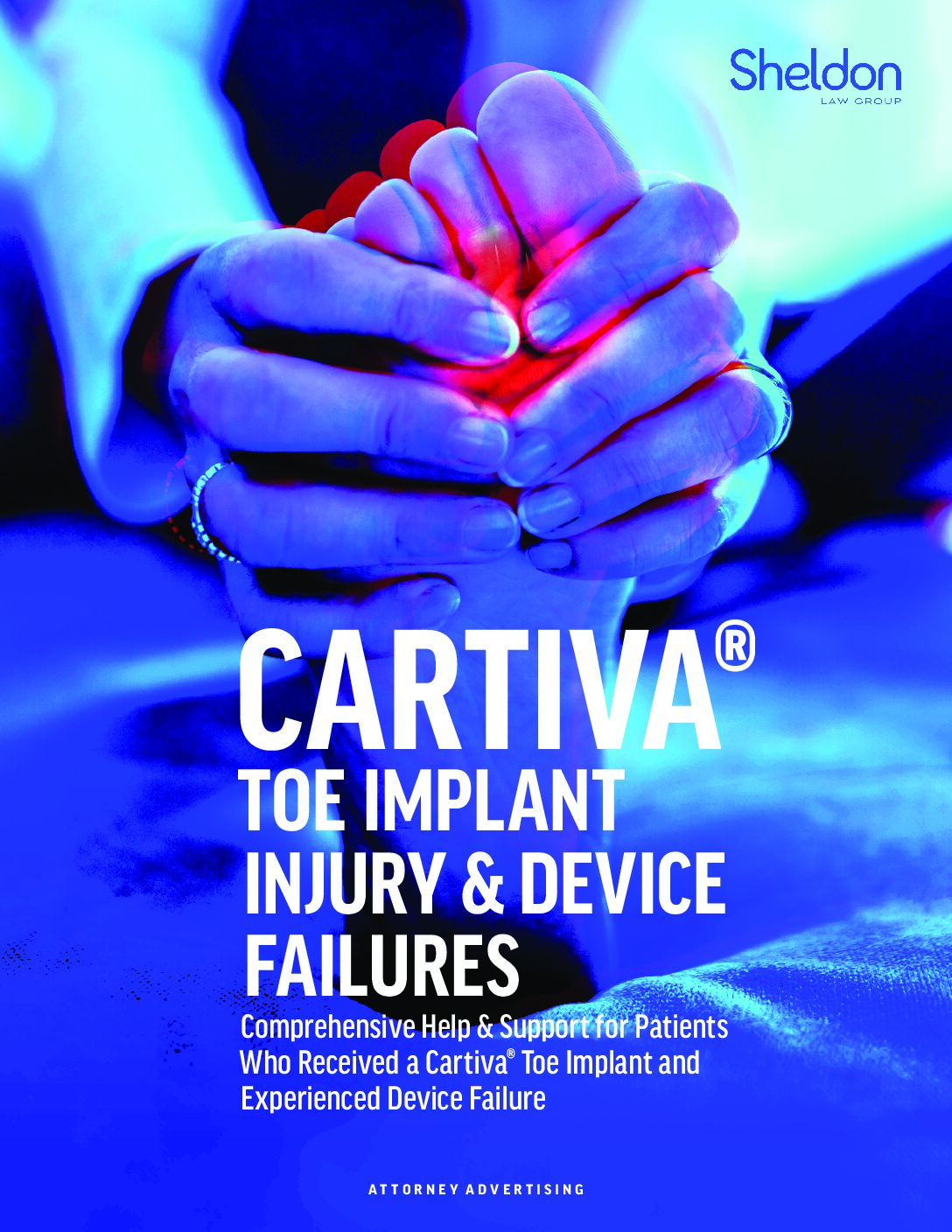Glossary of Medical Terms Related to Cartiva Implants and Foot and Ankle Surgery
Get A 100% Free CASE EvaluationGeneral Terms:
- Arthroscopy: Minimally invasive surgery using a camera and small instruments to visualize and repair joints.
- Fusion: Surgical joining of two bones to create a single, immobile unit.
- Hallux rigidus: Degenerative arthritis of the big toe joint, causing pain and stiffness.
- Implant: Medical device surgically placed in the body to restore function or correct abnormalities.
- Joint replacement: Surgical removal of a damaged joint and replacement with an artificial one.
- Osteoarthritis: Degenerative joint disease characterized by cartilage breakdown, inflammation, and pain.
- Revision surgery: Second surgery to repair or replace a previously implanted device or address complications.
Cartiva-Specific Terms:
- Cartiva implant: Hydrogel implant used as an alternative to fusion surgery for hallux rigidus.
- Subsidence: Sinking of the Cartiva implant into the underlying bone.
- Friction coefficient: Measure of the implant's resistance to movement against the bone.
- Osteoporosis: Bone loss condition leading to weak and fragile bones.
- Dehydration: Loss of water from the Cartiva implant, potentially affecting its stability.
Foot and Ankle Anatomy:
- Metatarsals: Five long bones connecting the ankle to the toes.
- Phalanges: Bones forming the toes.
- Sesamoids: Tiny bones embedded in tendons around the big toe joint.
- Tarsals: Seven bones forming the ankle joint.
- Ligaments: Bands of tissue connecting bones to stabilize joints.
- Tendons: Bands of tissue connecting muscles to bones for movement.
Surgical Procedures:
- Arthrodesis: Surgical fusion of the big toe joint.
- Cheilectomy: Removal of bony growths from the big toe joint.
- Osteotomy: Cutting and realigning a bone to correct deformity.
- Percutaneous surgery: Minimally invasive surgery through small skin incisions.
- Explantation: Surgical removal of an implant.
Diagnostic Imaging:
- X-ray: Imaging test using radiation to visualize bones and joints.
- MRI: Imaging test using magnetic fields and radio waves to create detailed images of soft tissues and bones.
- CT scan: Imaging test using multiple X-rays to create detailed 3D images of bones and soft tissues.
Remember: This is not an exhaustive list, and it is always best to consult with a qualified medical professional for any specific questions or concerns you may have.

